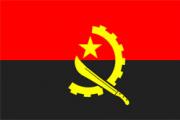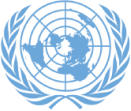SECURITY COUNCIL
OPEN DEBATE
Threats to International Peace and Security Caused by Terrorist Acts
APRIL 14th, 2016
STATEMENT
Mr. President,
We thank the Chinese Presidency of the Security Council for convening this important meeting and for the Concept Note to guide our Debate, that affords to the entire UN membership an opportunity to renew its commitment to the fight against terrorism, a scourge that the international community, in its entirety, must contain, degrade and destroy, if we are to build a more just and peaceful world.
We also thank the Secretary-General for sharing with the Council his insights on an issue which has become a matter of extreme concern.
In fact, terrorism is a serious threat to international peace and security and an unprecented challenge, due to the caracteristics it has assumed, with ambitions of conquering and administering territories, under a program aimed at bringing the peoples under the yoke of darkness and obscurantism, in total contravention with the norms of civilized coexistence and in total denial of diversity, be it cultural, racial or religious.
Contemporay terrorists, with their backward interpretation of religion as a banner of hatred and intolerance, turned the present world even a more dangerous place in which to live.
In Africa, terrorism is spreading widely and dangerously: Boko Haram in Nigeria, Al-Qaeda and its affiliates in the Islamic Maghreb, Ansar al-Sharia and ISIL in Libya, and Al-Shabaab in Somalia spread without mercy, misery, death and terror.
The Sahel region, Mali, the Central African Republic and the Democratic Republic of Congo are also the target of terrorist groups, in a rampage of evil and destruction.
This is a troubling situation which threatens peace, stability and security throughout the continent.
Mr. President,
In recent years, a disturbing development has emerged, linked to the growing number of individuals involved in conflicts worldwide, feeding a new type of “International Terrorism” giving rise to the unprecendented phenomenon of "Foreign Terrorist Fighters".
Terrorist groups such as al-Qaeda, the Al-Nusra Front, ISIL, Boko Haram and others continue to recruit adherents or viciuously abduct young people to be transformed in terrorist fighters all over the world.
This situation has put the international community under allert on the need to identify and address the root causes of this phenomenon and apply the best approaches to counter this worrying trend.
Mr. President,
It is understood that the resolution of ongoing conflicts, fundamentally in Syria, Iraq, Libya and Mali would have a direct impact on the driving forces of ISIL terrorism, in the Sahel region and elsewhere, where terrorists have pledged allegiance to the self proclaimed Califate of Syria and the Levant.
The Report of the Secretary-General on the threat posed by Isil (Da'esh) to international peace and security and the range of United Nations efforts in support of member States in countering terrorism makes relevant recomendations on measures States and the United Nations should take to counter such unprecendet threat.
The report reminds that States, while bearing the primary responsibility to counter terrorism are unable to do it acting in isolation: the global dimension the terrorist threat has assumed requires global responses for which the United Nations and other international organizations play a critical role, by adopting a conprehenshive, concerted and coordinated approach.
Such strategic approach, aims at strenghtening the capacities of States in countering the financing of terrorism, by preventing and disrupting terrorism financing; implement in full the sanctions regimes imposed by the Security Council against the terrorist organizations; strenghten regional cooperation in applying instruments related to transnational organized crime, given its organic link with terrorism; strenghten financial intelligence in the investigation of terrorist activities; countering the recruitment of would be terrorists through the internet and its use in fighting radicalization and violent extremism; prevent and disrupt and criminalize the travel of foreign terrorist fighters; address the issue of terrorist fighters returning to their countries of origin; take action to disrupt the capacity of terrorists to plan and carry out attacks; protect the cultural heritage, so disgracefully destroyed by terrorist groups.
Mr. President,
We reiterate the full commitment of Angola in combating the threat posed by terrorism.
The Angolan Government established the National Anti-Terrorism Observatory, under the coordination of the Ministry of the Interior, comprising a group of multi-sectoral experts, from various government departments, including defense and security services, with the task of monitoring any potential or current terrorist threat.
Security Council Resolution 2178 (2014) sets up concrete action in mobilizing the international community to fight Foreign Terrorist Fighters, including by adopting relevant national legislation.
The Angolan legislation applies heavy prison penalties for anyone collaborating with a terrorist group, either through the provision of information, material means, including weapons, ammunition, tools for committing crimes, shelter, meeting places, or by helping to recruit members for terrorist organizations.
Mr. President,
International cooperation is a fundamental tool in countering the threat of terrorism, and in this context, Resolutions 1373 (2001) and 1624 (2005) provide guidelines to promote cooperation in combating terrorism.
In applying these guidelines, Angola cooperates with member States of the Community of Portuguese Language Countries (CPLP), and of the sub-regional organizations, namely SADC and ECCAS, in the exchange of information, administrative and judicial cooperation in preventing and fighting terrorism.
A Regional Early Warning Centre (REWC) was established to improve communication among the 14 Member States of SADC.
The African Security and Intelligence Committee (CISSA) operates, at the African Union Level, as a mechanism for cooperation, coordination and exchange of information.
Bilaterally, Angola cooperates with the African Centre for Studies and Research on Terrorism (CAERT), based in Algiers, Algeria.
Regarding the financing of terrorism, the Angolan Parliament adopted the Law on Prevention of, and Fight against Terrorism, and the African Union Convention on the Fight Against Terrorism.
Additionally, a number of legal measures were put in place, ratifying the:
- United Nations Convention for the Suppression of Financing of Terrorism;
- The Anti-Terrorism and Money Laundering Law
In order to centralize and process all the information related to money laundering and terrorist financing, Angola created the Financial Intelligence Unit within the National Bank..
To conclude, Mr. President, I would like to renew the commitment of Angola to continue working with the United Nations in the implementation of the relevant resolutions, programs and plans of action aimed at effectively prevent and ftight the threat posed by terrorism in all its forms and manifestations.
Thank you.


